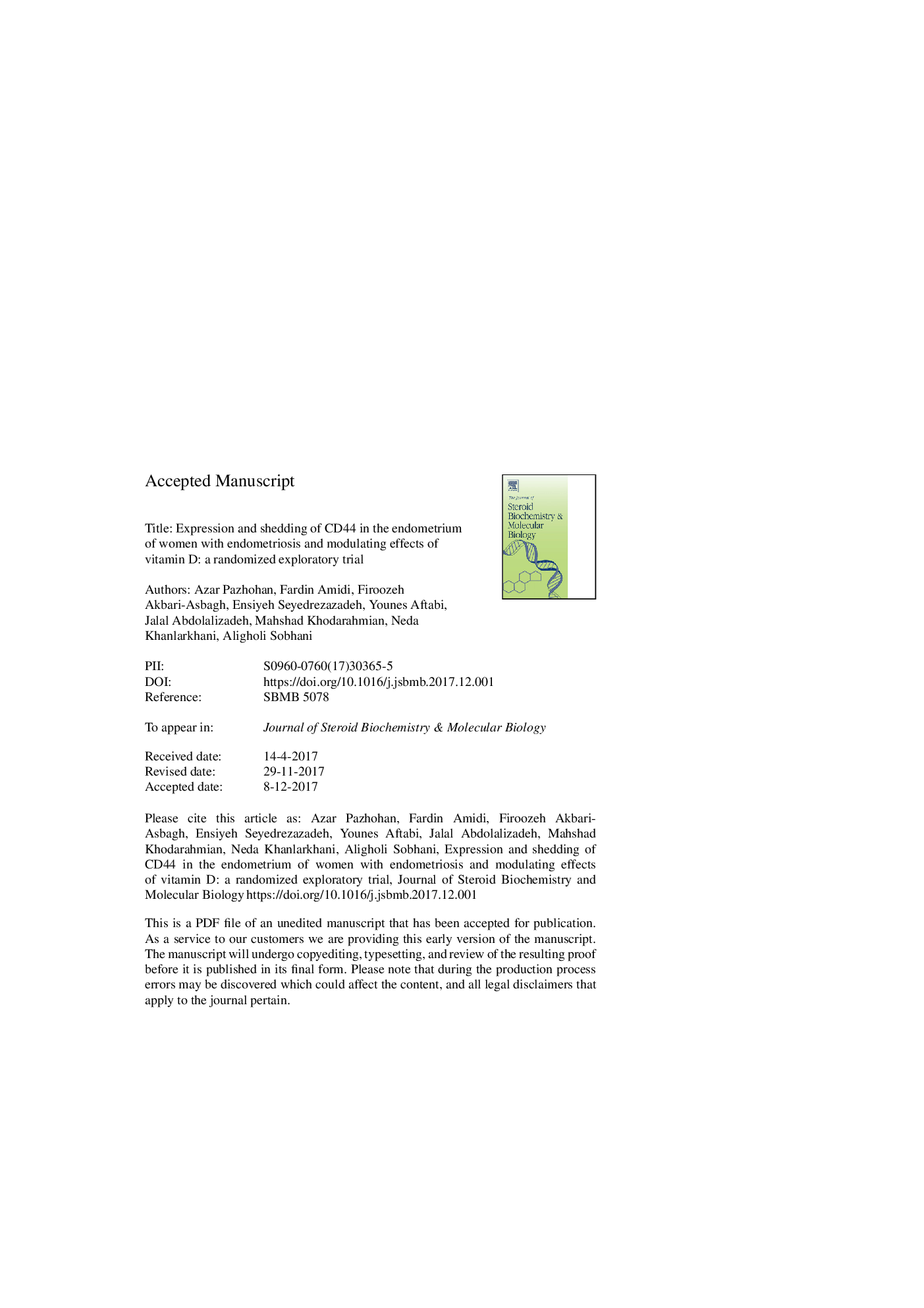| Article ID | Journal | Published Year | Pages | File Type |
|---|---|---|---|---|
| 8337841 | The Journal of Steroid Biochemistry and Molecular Biology | 2018 | 32 Pages |
Abstract
Endometriosis is an estrogen-dependent disease. The impaired estrogen and progesterone signaling over-activates the Wnt/β-catenin pathway in endometriosis patients, which can explain the increased invasion potency of endometrial cells derived from the endometrium of women with endometriosis. The regulatory effects of vitamin D on Wnt/β-catenin pathway were demonstrated by previous studies. According to gene prioritization method, among Wnt target genes, CD44 was in high ranking in relation to endometriosis. The aim of this study is to investigate the expression of CD44 in the endometrium of women with endometriosis and to study the effects of vitamin D on its expression. This prospective study was performed, during a 12 months period from December 2015 to November 2016, on healthy women as the control group (nâ¯=â¯14) and endometriosis patients (nâ¯=â¯34). The endometriosis patients randomly divided into two groups: One group treated according to the routine protocol and the other group, alongside the routine protocol, took 50,000 IU vitamin D weekly for 12-14 weeks. Blood, endometrial fluid, and endometrial tissue samples were obtained from the control group and endometriosis groups before and after the intervention. We used in silico gene prioritization to study the relevance of CD44. The expression of CD44 was evaluated using the techniques of Western blot, real-time polymerase chain reaction, and ELISA. The eutopic endometrium of women with endometriosis in mid-secretory phase expressed significantly higher levels of CD44s, CD44V, and CD44v6. The concentration of soluble CD44 in the serum and endometrial fluid of endometriosis patients was higher than of healthy women. The expression level of CD44s, CD44V, and CD44v6 in the eutopic endometrium as well as the concentration of soluble CD44 in the endometrial fluid was decreased after modification of the circulating levels of 25(OH)D. It seems that the increased expression and extensive shedding of CD44 in eutopic endometrium play a role in the pathogenesis of endometriosis. Vitamin D can control and modify this process at least in part. We suggest more in vivo investigations on the therapeutic potency of vitamin D in endometriosis.
Related Topics
Life Sciences
Biochemistry, Genetics and Molecular Biology
Biochemistry
Authors
Azar Pazhohan, Fardin Amidi, Firoozeh Akbari-Asbagh, Ensiyeh Seyedrezazadeh, Younes Aftabi, Jalal Abdolalizadeh, Mahshad Khodarahmian, Neda Khanlarkhani, Aligholi Sobhani,
